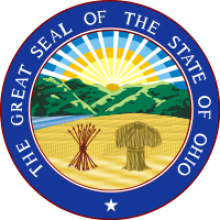Ohio State Legislators are Ready, Governor Balks
One of the many states where legislators introduced broadband bills in 2018 was Ohio, where HB 378 appeared to offer a promising answer to funding rural broadband deployment. The bill obtained bipartisan support as it passed through several committees, but prior to the legislature's summer break, enthusiasm cooled.
Looking at Minnesota
HB 378 draws from the Minnesota Border-to-Border Broadband Program by allocating specific funding for deployment. The bill also creates an entity to manage the funding awards. In Ohio, lawmakers anticipated funding would draw from the state’s Ohio Third Frontier Program, which was originally established to assist tech start-ups. In April, HB 378 passed the House with support from both Democrats and Republicans and seemed on a positive track. Two Senate committees also heard SB 225, a companion bill to HB 378.
A second broadband bill, HB 281, addresses only rural last mile connectivity and came before one committee. HB 281 also appeared to have support, but leadership never fast tracked the legislation. HB 281 allocated only $2 million, a fraction of the $100 million required over two years for HB 378. With one generous broadband bill and one much smaller to choose from, experts were left scratching their heads as to why both bills seemed to stop dead in their tracks.
What’s the Hold-up?
Speculation as to why neither of the bills have been advanced further by House and Senate leadership swirls around Governor Kasich’s administration. Democrat Jack Cera believes that the plans for the Third Frontier Fund has held up the process. Cera and other suggest that Governor Kasich wants to focus Third Frontier Funds in other directions, such as smart highways and autonomous vehicles. As far as Cera and others are concerned, broadband for rural Ohio is the priority:



